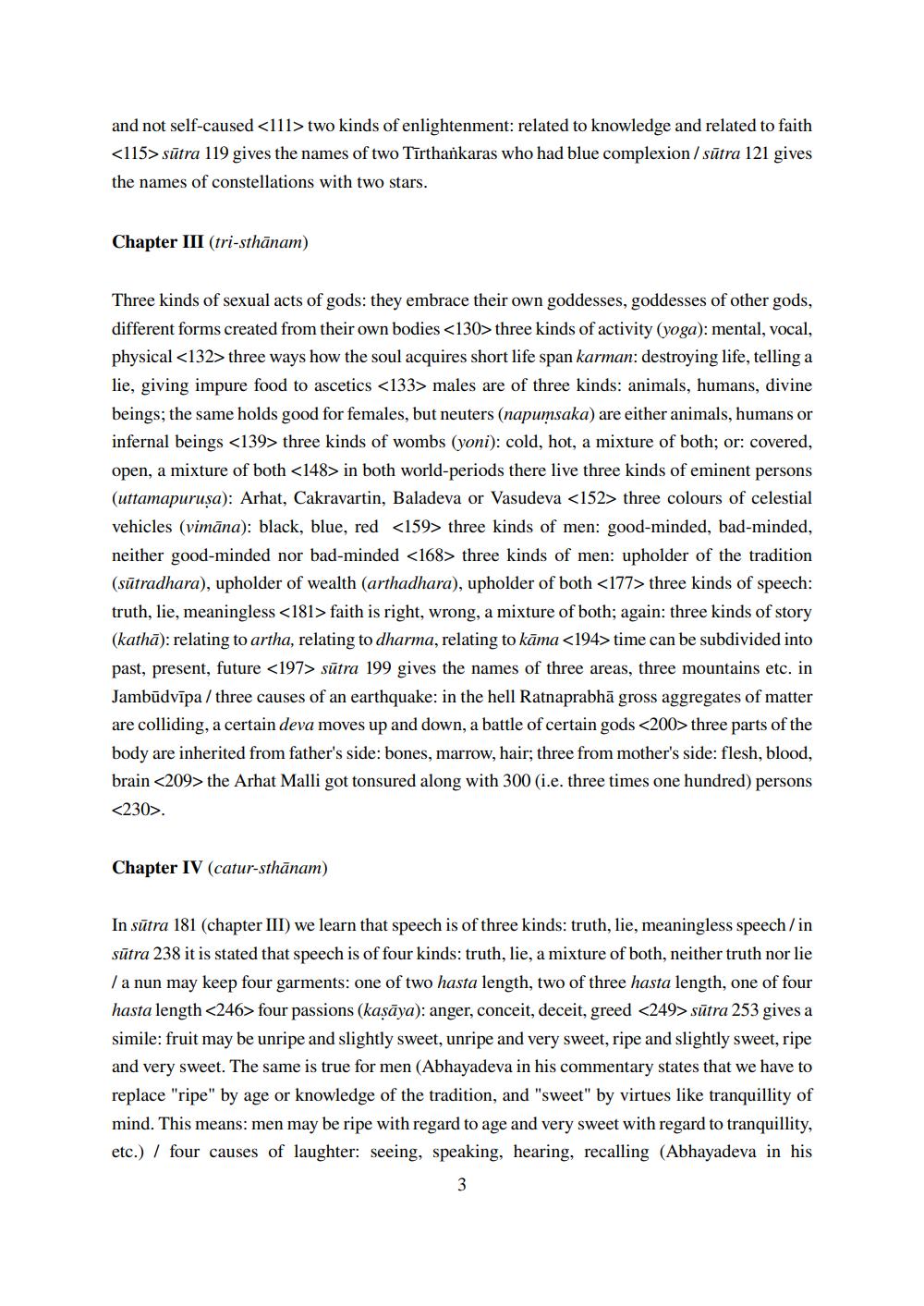________________
and not self-caused <lll> two kinds of enlightenment: related to knowledge and related to faith <115> sūtra 119 gives the names of two Tīrthankaras who had blue complexion / sūtra 121 gives the names of constellations with two stars.
Chapter III (tri-sthānam)
Three kinds of sexual acts of gods: they embrace their own goddesses, goddesses of other gods, different forms created from their own bodies <130> three kinds of activity (yoga): mental, vocal, physical <132> three ways how the soul acquires short life span karman: destroying life, telling a lie, giving impure food to ascetics <133> males are of three kinds: animals, humans, divine beings; the same holds good for females, but neuters (napumsaka) are either animals, humans or infernal beings <139> three kinds of wombs (yoni): cold, hot, a mixture of both; or: covered, open, a mixture of both <148> in both world-periods there live three kinds of eminent persons (uttamapuruṣa): Arhat, Cakravartin, Baladeva or Vasudeva <152> three colours of celestial vehicles (vimāna): black, blue, red <159> three kinds of men: good-minded, bad-minded, neither good-minded nor bad-minded <168> three kinds of men: upholder of the tradition (sūtradhara), upholder of wealth (arthadhara), upholder of both <177> three kinds of speech: truth, lie, meaningless <181> faith is right, wrong, a mixture of both; again: three kinds of story (kathā): relating to artha, relating to dharma, relating to kāma <194> time can be subdivided into past, present, future <197> sūtra 199 gives the names of three areas, three mountains etc. in Jambūdvīpa/ three causes of an earthquake in the hell Ratnaprabhā gross aggregates of matter are colliding, a certain deva moves up and down, a battle of certain gods <200> three parts of the body are inherited from father's side: bones, marrow, hair; three from mother's side: flesh, blood, brain <209> the Arhat Malli got tonsured along with 300 (i.e. three times one hundred) persons <230>.
Chapter IV (catur-sthānam)
In sūtra 181 (chapter III) we learn that speech is of three kinds: truth, lie, meaningless speech/in sūtra 238 it is stated that speech is of four kinds: truth, lie, a mixture of both, neither truth nor lie I a nun may keep four garments: one of two hasta length, two of three hasta length, one of four hasta length <246> four passions (kasāya): anger, conceit, deceit, greed <249> sūtra 253 gives a simile: fruit may be unripe and slightly sweet, unripe and very sweet, ripe and slightly sweet, ripe and very sweet. The same is true for men (Abhayadeva in his commentary states that we have to replace "ripe" by age or knowledge of the tradition, and "sweet" by virtues like tranquillity of mind. This means: men may be ripe with regard to age and very sweet with regard to tranquillity, etc.) / four causes of laughter: seeing, speaking, hearing, recalling (Abhayadeva in his
3




